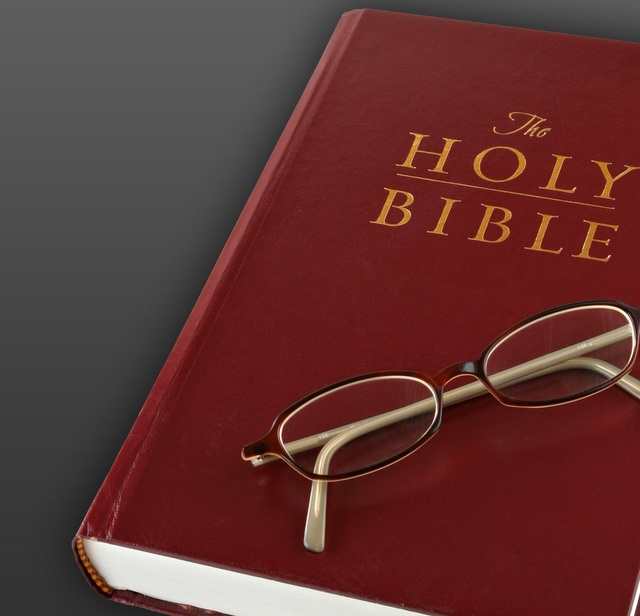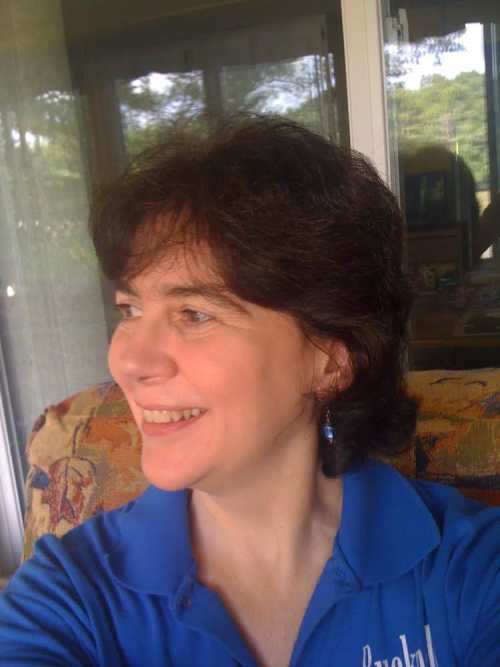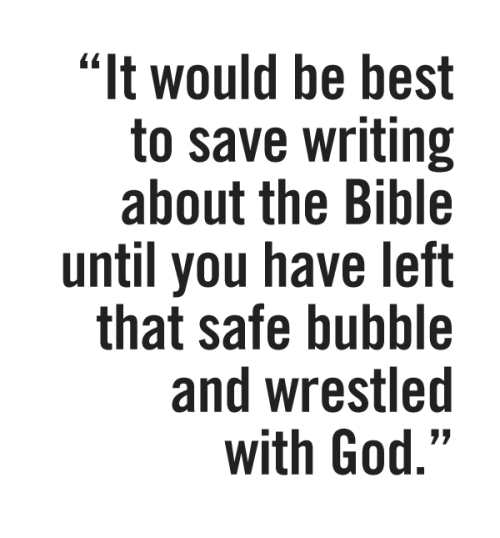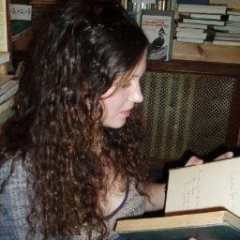So You Want to Write About the Bible? First, Learn How to Really Read it

In the space where the Bible meets the public stands the Rev. Anne Robertson, executive director of the Massachusetts Bible Society and accomplished independent religious writer. Anne’s work is dedicated to increasing biblical literacy, which frequently involves explicating the Bible’s passages, both in print and before audiences, for readers less familiar with their nuances or modern applications. Holding in mind the wealth of independently published work that discusses the Bible, I approached the Rev. Robertson to discuss the do’s and don’ts of writing about religion. Following is an edited transcript of our discussion.
The Massachusetts Bible Society uses unconventional methods to increase biblical literacy. Your own work also approaches the divine with more creativity. Why is that important?

Rev. Anne Robertson
We have to be humble in our theology. To think we can understand the ways of God is a fool’s errand.
When Jesus was faced with religious questions, he didn’t resort to academic disputes. Instead he used metaphors and parables—creative responses that could give us a glimpse beyond the veil, but no more. Much of the rest of the Bible does that, too. Poetry, story, song—the ways we express our questions and our beliefs are as varied as those expressing them.
When we take those creative responses literally, I believe we do violence to the texts and to the sacred stories they represent. They say that imitation is the most sincere form of flattery, and I think that the best response to a creator God is to be creative ourselves.
How do you feel about the access that independent publishers provide to laity who wish to discuss the Bible, or other important theological issues? Are there any potential pitfalls to the breadth of that access?
Bigger publishers deluded themselves into thinking that they could successfully gate content by publishing some things and not others. The Internet and related publishing platforms made that a fantasy some time ago. As someone who is taking advantage of such media, I am thrilled by that new access.
But the fact that no one is able to gate content also means that, to use a biblical metaphor, in the midst of all of that new, ripe wheat is a lot of chaff. Not only is there a lot of material that is poorly written and/or uninformed, but much of it is downright dangerous. Passions are inflamed against certain beliefs or populations and can be easily picked up by the cruel and unstable and used for horrific purposes.
We still need gatekeepers to help people find the wheat and throw out the chaff. For us at the Massachusetts Bible Society, those gatekeepers are our reviewers. We have Bible scholars that are respected around the globe—Harvey Cox, Kwok Pui-lan, Walter Brueggamann, Justo González, Luke Timothy Johnson, Tom Long, and others—who provided assurances that Exploring the Bible: The Dickinson Series is good, solid material.
When you consider the contemporary religious landscape, which trends excite you?

The world has always had religious diversity, and at long last this is true of America, too. The opportunities are exciting: for expanding our minds and enriching our lives. What do Muslims find fulfilling about their faith? Where do Wiccans find joy? What can the Hindu teach me about living in this world? Any faith tradition that has been around for centuries continues to exist because it has tapped into some element of truth. I hope we can find our common ground and have some illuminating discussions.
But news headlines reveal that when religions meet, it’s not always “kumbaya,” Especially where a particular religion is dominant, an influx of different beliefs brings fear rather than curiosity.
In my book Blowing the Lid Off the God-Box (Morehouse Publishing, 2005) I dealt with this clash by pointing out that particularity is not the problem. We all need to know what we do and don’t believe and why. The problem isn’t the box, it’s the lid. It’s saying “my way of understanding God is totally right,” and anything different is totally wrong.
If you could assign those who wish to write about the Bible a short preliminary reading list, which titles would you select?
The first thing every one of them should do is read the Bible cover to cover without notes or commentaries. Every. Single. Word. To write about the Bible you need to know its contents, but also that its contents are not straightforward and easy to understand.
Next would be a book about how the Bible as we know it came to be. The first volume in my Exploring the Bible: The Dickinson Series is called What Is the Bible? and it explores just that. Reading the Bible Again for the First Time by Marcus Borg is also really helpful.
In our current climate in America, I would be remiss if I didn’t suggest reading the Koran cover to cover as well. Most Christians who read it are surprised by the overlap between the Koran and the Bible.
But I’m not sure that reading books is the way to prepare to successfully write about the Bible. The Bible is a library of books about the life experiences of worshipers. Until we have been out experiencing life in its fullness, most of the Bible will remain beyond our understanding.
If you have lived your life thus far in a bubble—be it the ivory tower of academia or the insular community of a single church or denomination—it would be best to save writing about the Bible until you have left that safe bubble and wrestled with God at the Jabbok River. Then, with a limp and a new name, you will be better equipped to write.

Michelle Schingler is a freelance writer who blogs about religion for Foreword Reviews. You can follow her on Twitter @mschingler
Michelle Anne Schingler
